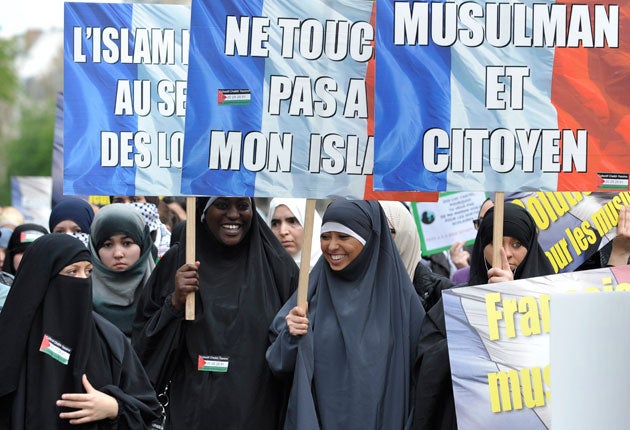Sarkozy woos far right as divisions grow deeper within his party

Your support helps us to tell the story
From reproductive rights to climate change to Big Tech, The Independent is on the ground when the story is developing. Whether it's investigating the financials of Elon Musk's pro-Trump PAC or producing our latest documentary, 'The A Word', which shines a light on the American women fighting for reproductive rights, we know how important it is to parse out the facts from the messaging.
At such a critical moment in US history, we need reporters on the ground. Your donation allows us to keep sending journalists to speak to both sides of the story.
The Independent is trusted by Americans across the entire political spectrum. And unlike many other quality news outlets, we choose not to lock Americans out of our reporting and analysis with paywalls. We believe quality journalism should be available to everyone, paid for by those who can afford it.
Your support makes all the difference.Twelve months before presidential elections, President Nicolas Sarkozy's centre-right party is threatening to dissolve into a poisonous, three-way civil war.
The tensions, created by the advance of the far-right National Front in local elections last month, will be further laid bare today when the party stages a "debate on secularity" – a euphemism for a debate on Islam.
The Prime Minister, François Fillon, will not attend – a close ally said he was "very uncomfortable" with what he sees as part of a failed strategy to mimic the National Front. About 1,000 Muslims marched through Paris on Saturday to protest against the debate which has been criticised as "misplaced" by moderate leaders of all major religions in France.
President Sarkozy and Jean-François Copé, leader of the ruling centre-right party, l'Union pour un Mouvement Populaire (UMP), have insisted on going ahead. They say the debate in a Paris hotel is not an attack on Muslims but an open-minded discussion of ways to prevent Islam, and other religions, from damaging the secular and liberal traditions guaranteed by the law and constitution in France.
Critics on the left – and in the moderate and centrist factions within the UMP – say the initiative is part of a drive to appeal to far-right voters which began last year with the clampdown on Roma migrants from eastern Europe. They say that the resurrection of the National Front (NF), under its plausible new leader, Marine Le Pen, suggests this strategy is not only crass but counter-productive.
Tensions between Mr Sarkozy and Mr Fillon, reappointed last November, are now so pronounced that the President is rumoured to be considering another government reshuffle – the third in six months – to dump his Prime Minister.
Mr Sarkozy faces a potentially calamitous defection this week by the former environment minister, Jean-Louis Borloo, leader of a "radical" or centrist party within the UMP. Mr Borloo is expected to announce on Thursday that he is leaving the UMP and will run in the presidential election next April as a centrist "one nation" candidate.
Though unlikely to reach the second round, two-candidate run-off, Mr Borloo is said by opinion polls to command around 8 to 10 per cent of the first-round vote, which could elbow Mr Sarkozy into third place. Recent opinion polls have suggested that French voters may be confronted with a choice in the second round between a Socialist (identity as yet unknown) and Ms Le Pen.
In other words, the rise of the new NF leader and Mr Sarkozy's unpopularity threaten to make him the first sitting president of the Fifth Republic (ie since 1958) to be eliminated in the first round of a presidential election.
An opinion poll in Le Parisien yesterday suggested that Mr Fillon would be marginally better placed than his boss to win next year's election. On the other hand, 78 per cent of UMP voters told the pollsters that they thought Mr Sarkozy should still run.
The President, who was in China and Japan last week, is said to regard the "debate over the debate" as a storm in a tea-cup. He believes last week's local elections, in which the NF gained ground but won only two out of 1,000 county council seats nationwide, was, overall, an encouraging result.
His strategy remains to "neutralise" Ms Le Pen by stealing some of her themes while attacking her on her muddled social and economic programme.
The identity of the likely centre-left challenger to Mr Sarkozy may become clearer in the next few days. The former Socialist party leader, François Hollande, confirmed last week that he would run in the party's primary in November. The opinion poll favourite, Dominique Strauss-Kahn, head of the IMF in Washington, is expected to declare his hand next week.
Join our commenting forum
Join thought-provoking conversations, follow other Independent readers and see their replies
Comments